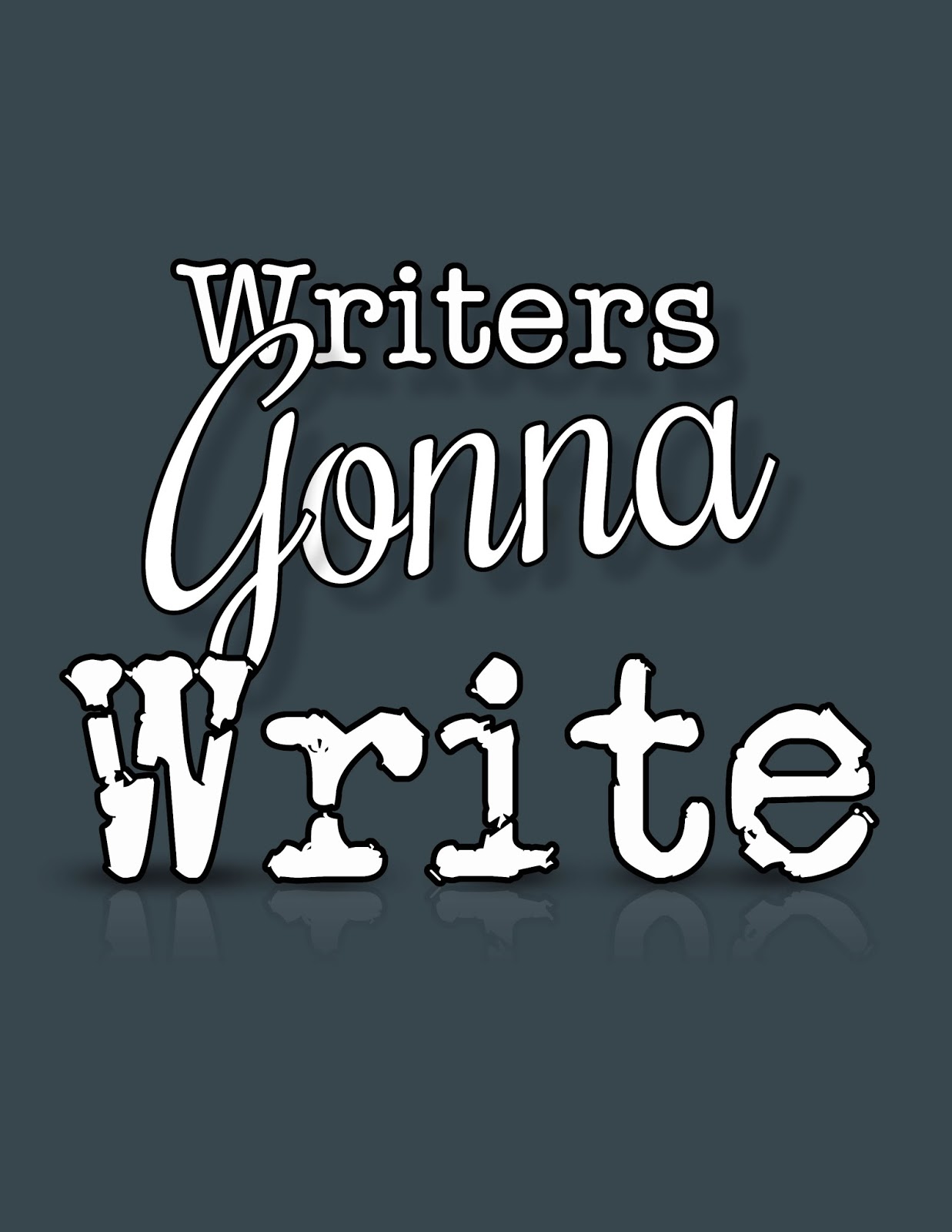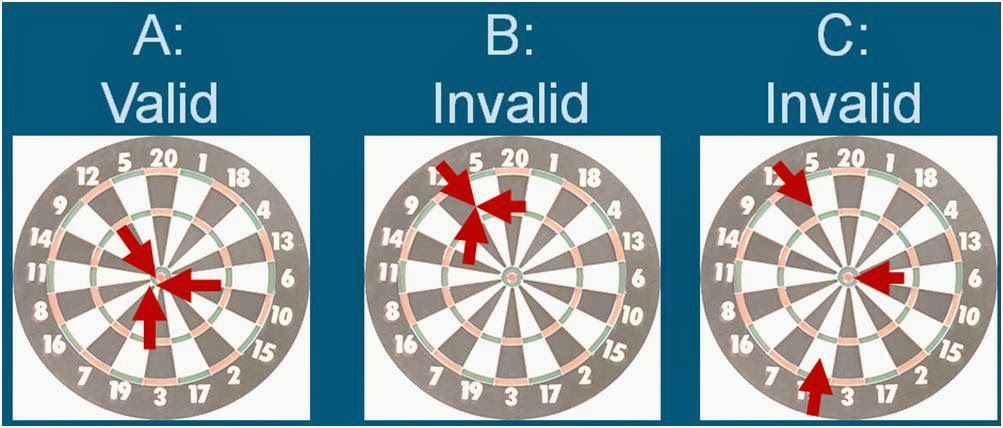
Reliability and Validity: A Lesson for the Publishing Writer
September 25, 2013




Everyday we are bombarded with statistics
or absolute statements telling us how relevant or accurate certain treatments or
exercise programs are even in books we read- I recommend The Essential Guide to Getting Your Book Published: How to Write It, Sell It, and Market It . . . Successfully . Sure it is a lot of information, but it’s also often a
. Sure it is a lot of information, but it’s also often a
result of years of work and research to try and collect enough evidence to make
such claims (though we know this isn’t the case ALL the time). Some of the
criticisms of the field of the arts relate to the fact that such concrete evidence cannot always be
collected to quantify the efficacy or impact of a song, a dancer’s career,
or a writer’s success, just to name a few.
or absolute statements telling us how relevant or accurate certain treatments or
exercise programs are even in books we read- I recommend The Essential Guide to Getting Your Book Published: How to Write It, Sell It, and Market It . . . Successfully
result of years of work and research to try and collect enough evidence to make
such claims (though we know this isn’t the case ALL the time). Some of the
criticisms of the field of the arts relate to the fact that such concrete evidence cannot always be
collected to quantify the efficacy or impact of a song, a dancer’s career,
or a writer’s success, just to name a few.
There
are many good reasons for this, and I am a strong believer that using numbers
to describe the impact of a piece of art is, in a way, “selling that artwork
short.” The appreciation of a book or the struggle of a character comes from
how we emotionally relate to these creations, and mathematicians can argue all
they want, but numbers and their interpretations simply lack empathy.
are many good reasons for this, and I am a strong believer that using numbers
to describe the impact of a piece of art is, in a way, “selling that artwork
short.” The appreciation of a book or the struggle of a character comes from
how we emotionally relate to these creations, and mathematicians can argue all
they want, but numbers and their interpretations simply lack empathy.
So
why am I bothering with this discussion then? Well, there are some key
principles that I think you should consider, that come from the world of statistics
and science, when you are considering publishing your book. The two concepts I want to briefly present to
you in this post are reliability and validity.
why am I bothering with this discussion then? Well, there are some key
principles that I think you should consider, that come from the world of statistics
and science, when you are considering publishing your book. The two concepts I want to briefly present to
you in this post are reliability and validity.
In
the simplest terms, reliability refers to how consistent a particular tool is. Most
recently I was learning about it in the context of assessment tools used to
measure a child’s speech and language capacities. Can we depend on a given tool
to consistently measure what we want? In terms of publishing your book, you
have to consider this with a critical mind. How reliable is the route you are
choosing to publish in, and how consistently does it yield results? This may
seem like a no-brainer, but it is amazing how many people don’t do the research
themselves. And like I said, the research isn’t out there to the same extent it
is in the experimental fields. Ask around for experiences, find out average
publishing rates, question how they are going to best serve your needs and
fulfill their often superlative claims. Basically, before you commit to a
publishing avenue (be it self-publishing or through a publishing company), you
want to make sure that (to the best of its ability) it suits your best interest
and follows through with what it claims to.
the simplest terms, reliability refers to how consistent a particular tool is. Most
recently I was learning about it in the context of assessment tools used to
measure a child’s speech and language capacities. Can we depend on a given tool
to consistently measure what we want? In terms of publishing your book, you
have to consider this with a critical mind. How reliable is the route you are
choosing to publish in, and how consistently does it yield results? This may
seem like a no-brainer, but it is amazing how many people don’t do the research
themselves. And like I said, the research isn’t out there to the same extent it
is in the experimental fields. Ask around for experiences, find out average
publishing rates, question how they are going to best serve your needs and
fulfill their often superlative claims. Basically, before you commit to a
publishing avenue (be it self-publishing or through a publishing company), you
want to make sure that (to the best of its ability) it suits your best interest
and follows through with what it claims to.
Validity
then, refers to how well a tool actually measures what it is designed to
measure. Scientists reading this, if you thought my last extrapolation was “generous”
you will squirm at this one, but hear me out. When you are looking to publish
your book, you want to make sure that your book (the end product after
publishing) has the effect you intended. You want to make sure that the
publishing method you choose remains respectful of your vision so that you can
maximize the impact on your audience. So while reliability referred to the
actual company you choose, validity refers to how that company treats your book
(and you as the writer).
then, refers to how well a tool actually measures what it is designed to
measure. Scientists reading this, if you thought my last extrapolation was “generous”
you will squirm at this one, but hear me out. When you are looking to publish
your book, you want to make sure that your book (the end product after
publishing) has the effect you intended. You want to make sure that the
publishing method you choose remains respectful of your vision so that you can
maximize the impact on your audience. So while reliability referred to the
actual company you choose, validity refers to how that company treats your book
(and you as the writer).
So
when you are considering publishing your book consider these important concepts
that will inevitably bear influence on the success of your book. Don’t leave it
to chance. Take “wresponsibility”, as we talked about in a previous post
this month, and you’ll be one step closer to making your success as a published
writer a reality.
when you are considering publishing your book consider these important concepts
that will inevitably bear influence on the success of your book. Don’t leave it
to chance. Take “wresponsibility”, as we talked about in a previous post
this month, and you’ll be one step closer to making your success as a published
writer a reality.
N.B. I
think it is important to draw inspiration for writing from all kinds of areas.
This post for example was inspired by my own Clinical Practices class (which
has nothing to do with writing). It will never translate exactly, but a
different perspective is still one more way to empower your own outlooks in
life and will always prove an asset rather than a liability (some financial
terms thrown in there just for fun).
think it is important to draw inspiration for writing from all kinds of areas.
This post for example was inspired by my own Clinical Practices class (which
has nothing to do with writing). It will never translate exactly, but a
different perspective is still one more way to empower your own outlooks in
life and will always prove an asset rather than a liability (some financial
terms thrown in there just for fun).

Previous
In My Writing, I Trust
You May Also Like

Get More Traffic to My Blog? How Should I Do That?
April 19, 2012
Passionate Writing can be a Good Thing
June 23, 2010



